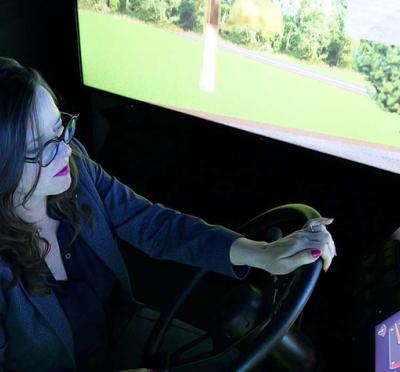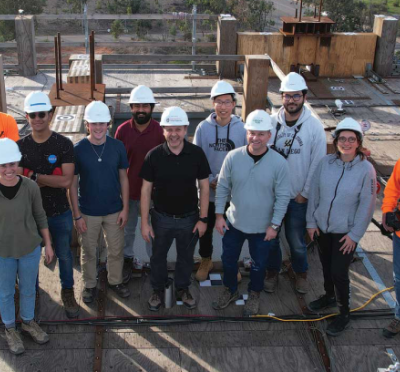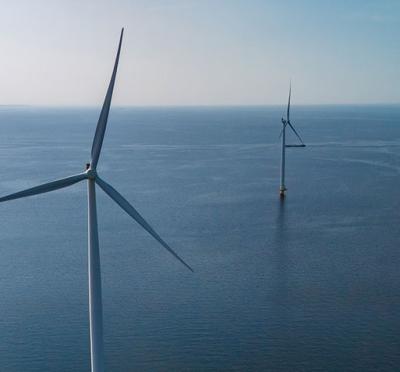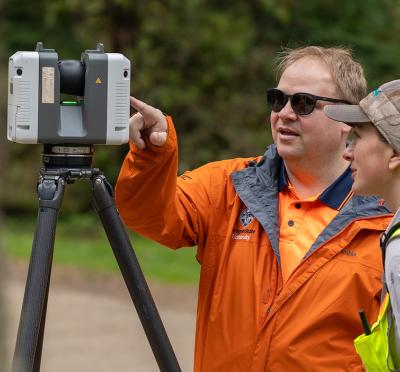
Description
As a civil engineer, you'll play a crucial role in designing and maintaining essential public works like roads, bridges, water supply systems, and more. In this program, you'll gain a solid foundation in basic sciences, social sciences, humanities, and engineering sciences and have the flexibility to delve deeper into areas that interest you the most.
With hands-on design projects and the opportunity to participate in paid internships, you'll get real-world experience and be ready to hit the ground running after graduation. From geospatial engineering to structural design, transportation engineering to computer programming, our program offers advanced coursework to equip you with the skills you need to succeed in this in-demand and rewarding field. With a diverse and highly qualified faculty, you'll have all the support you need to achieve your goals and make a difference.
Undergraduate Information
- Strength of Materials
- Civil and Construction Engineering Materials
- Geotechnical Engineering
- Design of Steel Structures
- Transportation Engineering
- Associated General Contractors of America Student Chapter
- Earthquake Engineering Research Institute/OSU Student Chapter
- Engineers Without Borders - Oregon State University
- Geo-Institute Graduate Student Organization
- Institute of Transportation Engineers - OSU Student Chapter
- Marine Renewable Energy Club
Have a question about a club? Ask the Engineering Student Council.

“Engineers Without Borders has taught me to push my boundaries. It has given me friendships, both here and all across the world. It has taught me the value of working for a cause, being part of something bigger than myself. The work I do, no matter how big or small, can make a difference.” – Rachel Yonamine, B.S. civil engineering ’19. Read about Rachel’s experience at Oregon State.
Spanning the globe
Rick Robertson, civil engineering ’85, had no idea how far he’d go when he left his hometown of McMinnville. Since 1989, his career has taken him around the world, literally, to work on major projects — the latest being the $5.25 billion Panama Canal expansion.
Bringing order, efficiency to mass transit design projects
The next time you hop on a subway or ride a train between terminals at an airport, give a nod to engineers like Chris Tyndall, B.S. civil engineering ’09.
Pure water from a box is project’s promise
What if you could give millions of people access to safe drinking water and help solve the climate crisis at the same time? As a bonus, you could help your own community prepare for when the Big One comes. That’s the vision behind a personal-sized water treatment appliance now in development by a team led by two Oregon State engineering alumni.
Connecting with communities for clean water
How can students at Oregon State improve access to clean water for rural communities around the world? We hear from three students who worked in Nicaragua and Cambodia on projects that changed people’s lives -- including their own.
Graduate Information
The School of Civil and Construction Engineering offers graduate work leading to the Master of Engineering, Master of Science, and Doctor of Philosophy degrees. The MEng, M.S., and Ph.D. degrees offer concentrations in civil engineering, coastal and ocean engineering, construction, engineering education, geomatics, geotechnical engineering, infrastructure materials, structural engineering, transportation engineering, water resources engineering, and interdisciplinary areas. Areas of concentration can also be combined to form an integrated civil engineering M.S. program or M.S. and Ph.D. minors. The MEng is a course work-only degree requiring a final oral exam. For the MS degree, a thesis or project is required. The Ph.D. degree requires a dissertation.
Degree programs prepare the student for advanced-level entry into professional engineering practice and for careers in research and teaching. Majors within the department constitute approximately two-thirds of the total program. Minor fields may be selected from departmental offerings in different subject areas, from other engineering disciplines, or from other fields of study that support the major. The school also participates in the Master of Arts in Interdisciplinary Studies program.
For more information, contact the CCE Graduate Program Coordinator, 541-737-4934, or cce.school@oregonstate.edu
- Architectural Engineering
- Coastal and Ocean
- Construction
- Engineering Education
- Geomatics
- Geotechnical
- Infrastructure Materials
- Structural
- Transportation
- Water Resources
Requirements Degree information
The MEng is a coursework-only master's degree of 45 credits based on curricula that allow graduate students to efficiently focus on the academic courses that are most relevant to their professional objectives. Each student works with a committee and undergoes a final oral examination.
Students pursuing the MEng degree are typically not eligible for Graduate Assistantships but may apply for scholarships.
The School of Civil and Construction Engineering offers outstanding opportunities for graduate studies in the fields of Civil (CE) and Construction Engineering (CEM). The Oregon State School of Civil and Construction Engineering (CCE) excels in collaborative research and preparing work-ready graduates. Corvallis is a great place to live, and the friendly and skilled people here help make our school a truly enjoyable place to further your education. Please review the resources on this page to organize your application.
Minimum Admission Requirements
To become a Civil or Construction Engineering graduate student you must be admitted to Oregon State University through both the OSU Graduate School and CCE. Our faculty carefully review the material submitted to determine adequacy of academic background and alignment of the proposed study with the expertise of the faculty. The Office of Admissions will determine whether the general university conditions for admission have been met. Applicants will be notified by the Office of Admissions as to the action taken. The School does not have the capacity to accommodate all applicants who meet the minimum admission requirements.
When to Apply
Standard graduate admissions for CCE are for fall term only. If you wish to be considered for financial support beginning in fall term, you must apply by December 31 of the same year. We do not accept applications for winter or spring starts unless the applicant has explicit approval of a CCE faculty member who will serve as the research advisor. Because such applications often fall outside of the typical review cycle, they will be handled on a case-by-case basis, and the review schedule will vary.
Prior Degree
Applicants must have a baccalaureate degree from an accredited college or university. International students must have completed the equivalent of a four-year American baccalaureate degree.
Grade Point Average (GPA)
School of Civil and Construction Engineering requires a minimum undergraduate grade point average (GPA) of 3.00 (on a 4-point scale). The GPA is based on the last 90 graded quarter (60 semester) credit hours of the first baccalaureate degree plus all work completed thereafter. For international students, the GPA is based on the last 2 years of undergraduate courses.
GRE
GRE scores are not required for admission, but applicants may include GRE scores with their application.
Language Proficiency
Current English language proficiency requirements are posted on the International Student page of the OSU Graduate School.
Statement of Objectives
Applicants must include a description of their objectives in pursuing the advanced degree. This should be a brief summary (1,000 words or less, which is typically about two typed pages) of the applicant's career goals, research interests, and pertinent experience. This information is submitted as part of the electronic admission form (see below).
Recommendation Letters
You must provide the names and email addresses of three professional references as part of the online application. Your references will be sent instructions on how to submit their letters.
Applying for Admission
The university application must be completed and submitted online.
For more information, contact the CCE Graduate Program Coordinator, 541-737-4934, or cce.school@oregonstate.edu
Ingrid Arocho, assistant professor of construction engineering, found in the College of Engineering a place where she could succeed in her career without sacrificing other important aspects of her life. “I was looking for a place that I felt I could have my research and career — and have a family with a good work-life balance,” she said.
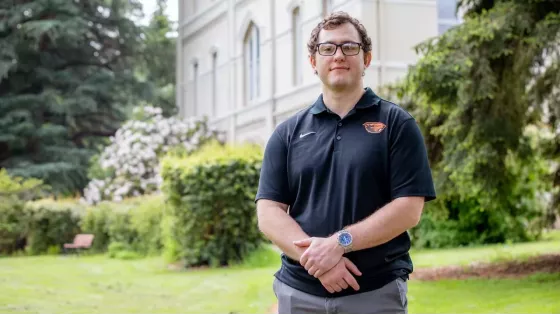
“There’s much more we need to research in transportation; you can’t just build your way out of congestion.” – Brain Staes, doctoral student, civil engineering. Read about Brian’s experience at Oregon State.
Kyle Herrera is a master’s student in civil engineering. His team is developing a procedure to identify, quantify, and classify marine debris objects using drones and polarimetric imaging. Kyle is advised by Chris Parrish, associate professor of civil engineering. The research was conducted in partnership with the National Oceanic and Atmospheric Administration.
Oregon State University places 2nd in DOE Marine Energy Collegiate Competition
A group of Oregon State University students placed second out of 17 teams representing five countries in the Department of Energy’s 2022 Marine Energy Collegiate Competition. The purpose of the competition is to produce new ideas for capturing the power of the ocean in pursuit of global climate goals, according to the DOE.
Spanning the globe
Rick Robertson, M.S. civil engineering ’87, had no idea how far he’d go when he left his hometown of McMinnville. Since 1989, his career has taken him around the world, literally, to work on major projects — the latest being the $5.25 billion Panama Canal expansion.
A way with water
“It’s really important to find better ways of managing water, because what we were doing in the past is not working for our current needs,” said Meghna Babbar-Sebens, associate professor of water resources engineering. Her approach is to look to nature for solutions by re-naturalizing degraded watersheds, including restoration of natural areas like wetlands.
‘Bike boxes’ can improve urban intersections for cyclists, Oregon State research shows
A roadway setup known as the “bike box,” a painted-off area for bicyclists at the front of an intersection, can help them stay safe at urban, signalized intersections, research by the Oregon State University College of Engineering indicates.
Oregon State researchers develop framework for modeling post-earthquake infrastructure resilience
Researchers at Oregon State University have developed a computational model for predicting the resilience of local and regional infrastructure networks and the recovery time for impacted communities following a massive earthquake and tsunami in the Cascadia Subduction Zone.
Left-turn traffic signals, better lighting, shorter crossings would enhance older pedestrians’ safety
Research by the Oregon State University College of Engineering and Portland State University suggests a trio of roadway treatments would enable people age 65 and older to travel on foot more safely.
Dune erosion solutions
Can plants fortify Oregon’s coastal dunes against storm surge? Meagan Wengrove, assistant professor of coastal and ocean engineering, built scale versions of dunes in one of the world’s largest wave flumes to find out.
Job Market Outlook
Make an informed decision to help meet your career goals by using this real-time job market information.
Accreditation
The Bachelor of Science (B.S.) and Honors Bachelor of Science (H.B.S.) degrees in the civil engineering program are accredited by the Engineering Accreditation Commission of ABET, http://www.abet.org. The ABET-accredited civil engineering curriculum is designed to prepare students for professional engineering registration and for responsible engineering positions with business, industry, consulting firms, the military, utilities, or public agencies.
A student may also earn a concurrent non-accredited Bachelor of Arts (B. A.) degree by completing 32 additional credit hours in residence, including proficiency equivalent to that attained at the end of the second year of a foreign language as certified by the Department of Foreign Languages and Literature.
